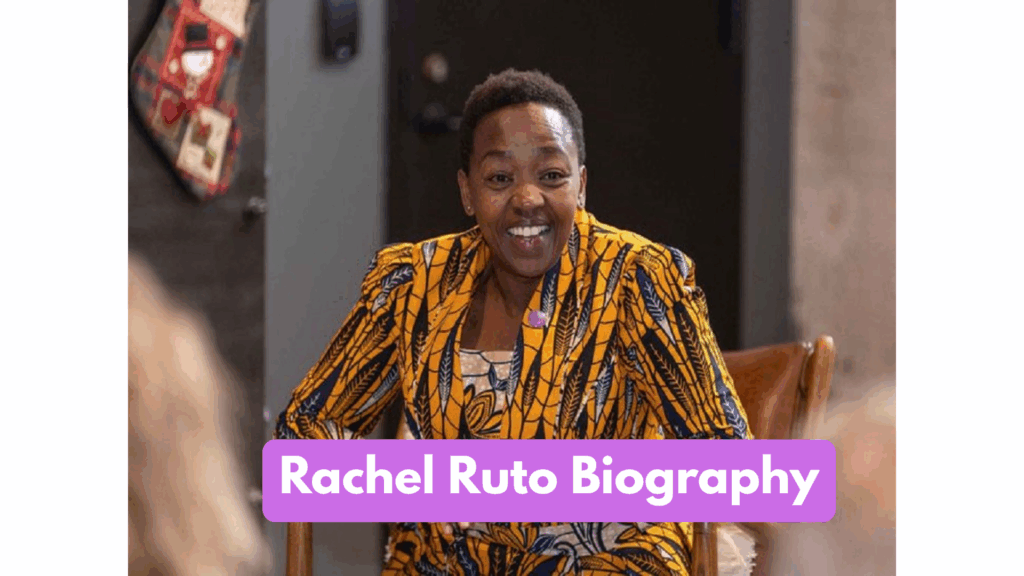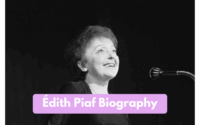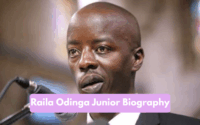Rachel Ruto Biography: Education, Parents, Children, Tribe, Spouse

Rachel Ruto is a prominent Kenyan public figure best known as the wife of William Ruto, the President of Kenya.
Beyond her role beside a national leader, Rachel Ruto has a life story that spans community activism, education, faith-based involvement, and work that champions women and children.
This biography delves into her early life, education, career, influence in public service, family life, and lasting legacy.
Early life and family background
Rachel Ruto was born Rachel Chebet in the Rift Valley region of Kenya. Raised in a close-knit family with strong cultural and religious values, her upbringing shaped much of her later community-oriented work. As with many families from the Rift Valley, education and faith were central pillars in her childhood. Though specifics like her exact birthdate and childhood anecdotes vary across profiles, the narrative that emerges is of a young woman grounded in local traditions yet open to the broader possibilities education could provide.
Education and formative years
Rachel pursued formal education, which equipped her to engage in community and faith-led initiatives later in life. Her educational journey included teacher training and involvement in programs that supported youth and women. Teaching and education are common launching pads for public engagement in Kenya; Rachel’s training allowed her to communicate, organize, and empower—skills she would continue to use throughout her life.
Meeting William Ruto and family life
Rachel met William Ruto while both were young. Their shared faith and regional ties fostered a partnership that would last decades. The couple married and started a family that would grow to include several children. Rachel has often been described as a devoted mother and homemaker whose influence extended beyond the home into community and national spheres.
Her role as a partner to a politician
When William Ruto began his ascent in Kenyan politics—holding positions from Member of Parliament to Cabinet roles and eventually the presidency—Rachel stepped into the public eye as a political spouse. Unlike some political partners who maintain strict private lives, Rachel took on visible responsibilities, participating in charitable work, attending public events, and serving as a moral and logistical support to her husband’s career. Her presence at campaigns and civic occasions contributed to William Ruto’s public image as a family-oriented leader.
Community work and activism
Rachel Ruto has been active in community projects, especially ones focused on women and children. She is associated with faith-based and grassroots initiatives that promote education, maternal health, and economic empowerment. By leveraging both her social standing and community experience, Rachel has helped put a spotlight on programs that support vulnerable populations, including small-scale women entrepreneurs and school-based projects.
Faith and church involvement
A devout Christian, Rachel’s faith is an important element of her identity. Church engagement has been both a personal priority and an avenue for outreach. In Kenya, religious networks often double as community support structures; Rachel’s involvement in church-led activities has enabled partnerships with NGOs and local leaders to expand the reach of humanitarian work.
Public image and style
Rachel Ruto is often noted for her warm public persona. Her public appearances, whether at state functions, charity events, or cultural gatherings, are marked by a sense of poise and humility. While style and fashion are not the primary focus of her public image, she represents Kenyan women who balance traditional values with modern public life—often wearing attire that blends contemporary elegance with cultural motifs.
Achievements and initiatives
Though Rachel’s public profile is frequently framed relative to her husband’s political career, she has spearheaded and supported notable initiatives. These include campaigns aimed at promoting education for girls, programs to encourage rural economic development, and partnerships with local NGOs to support health and social welfare. Her advocacy for women’s empowerment is particularly important in Kenya’s sociopolitical context, where gender equality and female economic participation remain pressing issues.
Role as First Lady
As Kenya’s First Lady, Rachel Ruto’s platform expanded significantly. The position allowed her to amplify projects and causes she cares about: from maternal and child health to education and small-business support for women. First Ladies in Kenya have historically used the role to influence social policy and mobilize support for non-partisan causes; Rachel continued in this tradition by lending visibility and resources to charitable and developmental programs.
Challenges and public scrutiny
Public life brings intense scrutiny. Rachel Ruto has navigated criticism and invasive interest in her private life, as well as the challenges that accompany being married to a high-profile politician. Balancing family privacy with public expectations is a recurring theme for many political spouses, and Rachel’s approach—emphasizing calm dignity and faith—has defined much of her media portrayal.
Personal interests and hobbies
Beyond public service, Rachel enjoys family time and faith-based community activities. Personal hobbies often include reading, church functions, and support for educational initiatives—interests that align with her lifelong advocacy for learning and community upliftment.
Philanthropy and long-term impact
Rachel’s philanthropic focus tends to be grassroots and pragmatic. Her initiatives often support education, smallbiz training for women, and community health programs. These efforts contribute to sustainable development by targeting the socio-economic root causes that limit opportunity for many Kenyans, particularly in rural areas.
Public recognition and awards
While specific awards and recognitions vary, Rachel has been acknowledged in media profiles and community testimonials for her service and commitment to social causes. Recognition is often less about formal accolades and more about the tangible impacts of the programs she supports: improved school attendance, empowered women entrepreneurs, and enhanced community cohesion.
Frequently Asked Questions (FAQs)
Q1: Who is Rachel Ruto?
A1: Rachel Ruto is the wife of Kenyan President William Ruto and a public figure involved in community, faith-based, and philanthropic activities focused on women, children, and education.
Q2: What causes does Rachel Ruto support?
A2: Rachel supports causes related to education, women’s economic empowerment, maternal and child health, and community development, often working with NGOs and faith-based groups.
Q3: Is Rachel Ruto professionally trained?
A3: Rachel has an educational background that includes teacher training—this foundation informed her community work and public initiatives.
Q4: How many children does Rachel Ruto have?
A4: Rachel and William Ruto have several children. Media reports sometimes vary on number and details; the couple is known for valuing family life and privacy.
Q5: What is Rachel Ruto’s role as First Lady?
A5: As First Lady, Rachel uses her platform to advocate for social causes, support charitable programs, and champion initiatives that improve livelihoods and education, especially for women and children.
Conclusion
Rachel Ruto’s biography is one of quiet service, faith, and community engagement. As an educator, partner to a national leader, and advocate for women and children, she illustrates how the role of a political spouse can extend into meaningful social impact. Her life underscores the intersection of traditional values and modern civic responsibility—an example that resonates with many Kenyans who seek community-driven change. Whether through small-scale grassroots work or national-level advocacy as First Lady, Rachel Ruto’s contributions reflect a commitment to uplifting others and supporting a more inclusive future for Kenya.


